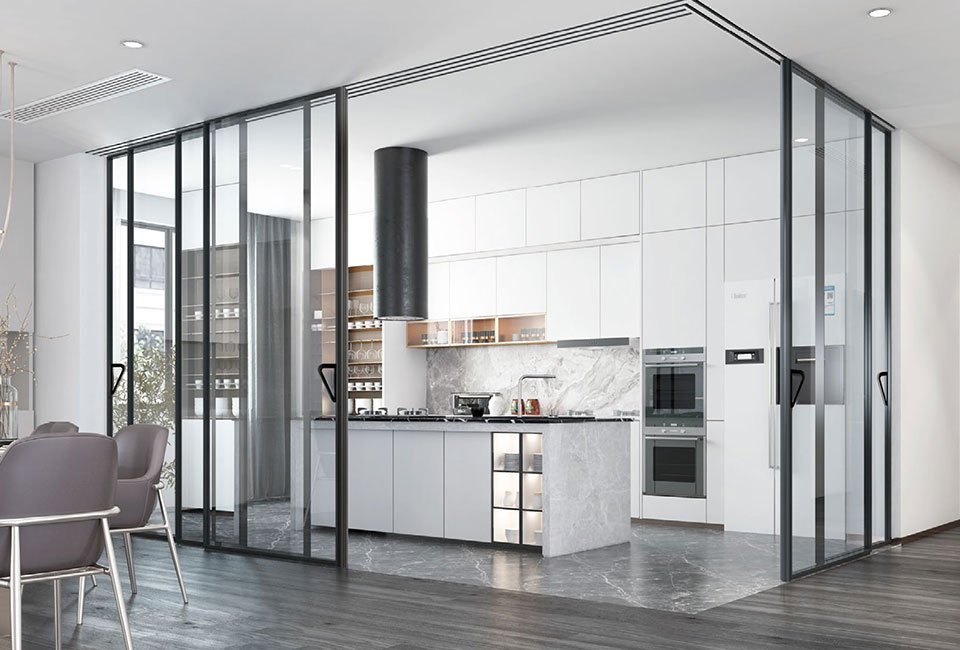Aluminum windows and doors are highly sought-after for their sleek design, durability, and energy efficiency. But have you ever wondered how they are actually made? The manufacturing process combines precision engineering, advanced materials, and modern technology to deliver products that are both stylish and long-lasting.
Here’s a step-by-step guide to how modern aluminum windows and doors are manufactured.
1. Designing and Planning
The process begins with design specifications. Customers or architects decide on the window or door style, dimensions, and features. At this stage, factors such as energy efficiency, glass type, and finishing options are planned to ensure the final product matches both function and aesthetics.
2. Aluminum Profile Extrusion
Aluminum profiles are created using extrusion technology:
- Raw aluminum billets are heated and forced through a mold to form precise shapes.
- Profiles are then cooled, cut, and treated for strength and durability.
- The slim, lightweight, yet strong structure makes aluminum ideal for modern designs with large glass panels.
3. Surface Treatment and Finishing
To enhance both appearance and performance, the aluminum frames undergo surface treatments such as:
- Powder coating – for vibrant, long-lasting colors.
- Anodizing – for increased corrosion resistance and smooth finishes.
- Wood-grain finishes – for a natural look with the strength of aluminum.
These treatments not only protect the material but also expand design possibilities.
4. Cutting and Machining
Each aluminum profile is cut to exact dimensions using CNC cutting and machining equipment. Holes for locks, hinges, and handles are also precisely drilled. Accuracy at this stage is critical for smooth assembly and long-term performance.
5. Assembly of Frames
The cut profiles are joined together to form window and door frames. This involves:
- Corner crimping or mechanical joints for stability.
- Thermal breaks inserted into the frame to reduce heat transfer.
- Sealing and weatherstripping for enhanced insulation and soundproofing.
6. Glass Installation
Glass selection depends on the customer’s needs:
- Double or triple glazing for energy efficiency.
- Tempered or laminated glass for safety.
- Low-E glass for UV and thermal control.
The glass is carefully fitted into the frame with specialized seals to prevent air or water leakage.
7. Hardware Fitting
Handles, locks, hinges, and sliding tracks are installed. Modern aluminum windows and doors often include:
- Multi-point locking systems for security.
- Soft-close mechanisms for smooth operation.
- Smart technology integration for remote control or automation.
8. Quality Inspection
Each finished product undergoes strict quality control testing, including:
- Frame strength and durability checks.
- Water and air tightness tests.
- Opening and closing functionality inspections.
Only windows and doors that meet high standards move on to packaging.
9. Packaging and Delivery
Finally, the completed aluminum windows and doors are securely packaged for shipping. At Delanshini, we ensure safe international delivery so products arrive in perfect condition, ready for installation

Conclusion
The manufacturing of modern aluminum windows and doors is a highly precise and technology-driven process. From extrusion to finishing and quality control, every step ensures durability, efficiency, and style.
At Delanshini Doors and Windows, we combine 20 years of expertise, factory pricing, and global shipping to deliver custom aluminum solutions tailored to your needs.
Contact us today at wang@gddlsn.com to learn more about our advanced manufacturing and custom design services.
Manufacturing, Customization & Import
How to Manufacture Modern Aluminum Windows and Doors
From Factory to Site: Our Aluminum Window Manufacturing Process
Customization Guide: How to Get Your Ideal Aluminum Casement Window from China
Aluminum Casement Window Price Comparison: Factory vs. Retail
5 Things to Check Before Importing Aluminum Windows from China
